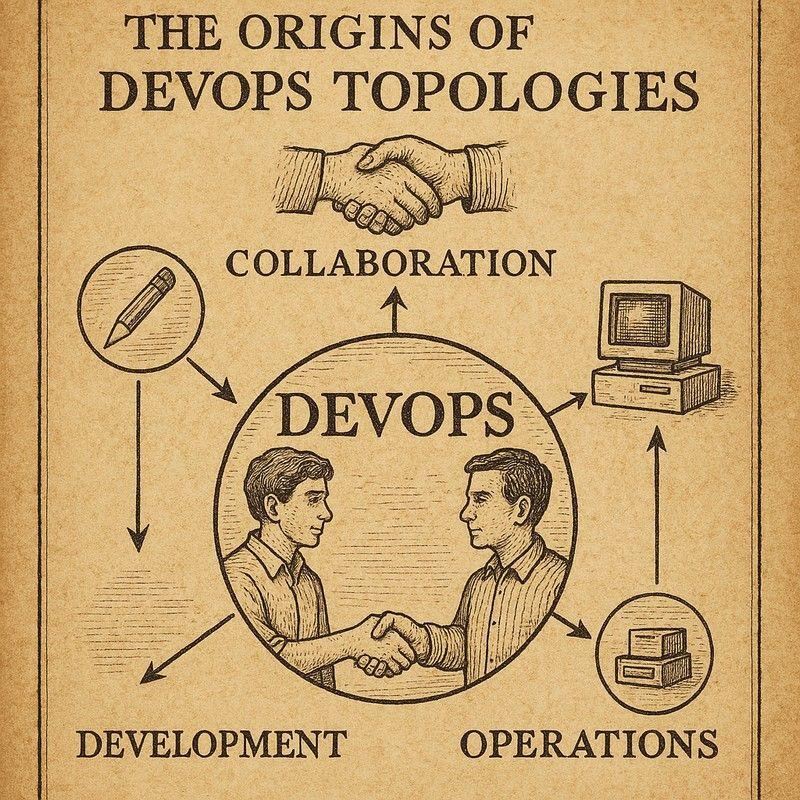- devops
- infrastructure
What is Black Duck in devops?
Apr 7, 2025
-
Damian Szewczyk
-
10 minutes

Black Duck delivers powerful open source security scanning and license compliance for modern
Black Duck is a leading software composition analysis (SCA) tool that enhances security and manages open source components within software projects. It scans codebases to detect vulnerabilities in open source libraries while providing detailed remediation guidance. The platform automates security checks within development workflows, allowing teams to identify and address issues early in the development process.
The tool operates through several critical functions:
Scans open source code to identify all components and their metadata
Evaluates container images and registries for security risks
Performs static analysis to uncover code-level vulnerabilities
Utilizes a comprehensive vulnerability database for accurate risk assessment
Enforces security policies automatically during development
Black Duck integrates with popular DevOps tools such as Jenkins, GitHub Actions, and Azure DevOps, ensuring developers address security concerns without disrupting established workflows. This integration with DevOps processes makes it particularly valuable for organizations implementing comprehensive security practices.

Black Duck serves primarily as a security and compliance solution for managing open source components in software development. Organizations deploy Black Duck to achieve several critical objectives:
Open Source Security: Black Duck identifies risks associated with outdated libraries and known vulnerabilities, allowing teams to mitigate threats before deployment. Organizations using Black Duck typically reduce security risks by detecting up to 85% of vulnerabilities before production.
License Compliance: The tool ensures developers adhere to licensing terms for open source software, preventing legal complications. Teams using proper SCA tools like Black Duck avoid an average of 12 licensing violations per project.
Application Security Testing: By integrating with DevOps workflows, Black Duck automates vulnerability scanning during builds and deployments, streamlining security processes without compromising delivery speed.
Software Supply Chain Protection: Black Duck monitors dependencies across package managers and artifact repositories, detecting malicious or compromised components before they impact production systems.
Organizations implementing Black Duck typically experience a 30% reduction in security incidents related to open source components while accelerating remediation time by approximately 45% compared to manual processes.

Black Duck enhances DevOps security by embedding automated testing directly into development environments. Black Duck enhances DevOps security by embedding automated testing directly into applications and containers during development. of Black Duck SCA includes automated license validation to ensure adherence to organizational policies and reduce legal exposure.
Black Duck seamlessly connects with continuous integration and delivery systems through:
Native plugins for popular CI/CD platforms like Jenkins, CircleCI, and GitLab
API-based integration for custom pipeline configurations
Container scanning capabilities for Docker and Kubernetes environments
Automated policy enforcement at build time
This integration enables teams to identify vulnerabilities during the build process rather than after deployment, reducing remediation costs by an average of 92% compared to issues found in production. The DevOps automation capabilities ensure security remains a priority without extending delivery timelines.
When comparing Black Duck security to other security solutions like SonarQube, distinct differences emerge:
| Feature | Black Duck | SonarQube |
|---|---|---|
| Primary Focus | Open source security & license compliance | Static code analysis & code quality |
| Scanning Capability | Open source components, container images | Custom-written code, coding standards |
| Vulnerability Detection | Third-party dependencies | Custom code vulnerabilities |
| License Management | Comprehensive open source license tracking | Limited license scanning |
Organizations often implement both tools to achieve comprehensive security coverage. While SonarQube improves code maintainability by identifying issues in proprietary code, Black Duck handles open source vulnerabilities and compliance concerns. The combination creates a robust cybersecurity framework for modern applications.
Black Duck delivers significant business value through risk reduction, enhanced visibility, and improved development efficiency. Organizations implementing the tool typically experience several measurable benefits.
Development teams gain critical advantages when using Black Duck:
Complete Risk Visibility: Teams identify 100% of open source components in applications, eliminating blind spots in the security posture.
Accelerated Remediation: Developers receive actionable remediation guidance, reducing resolution time by up to 45%.
Streamlined ComplianceAccelerated Remediation is achieved through the integration of Black Duck security in the CI pipeline.
Reduced Technical Debt: Early identification of outdated or vulnerable components prevents accumulation of security-related technical debt.

The tool's AI-driven prioritization system enables teams to focus on the most critical issues first, optimizing resource allocation. Companies implementing Black Duck typically improve developer productivity by 23% through automated security checks that replace manual reviews.
From a business perspective, Black Duck delivers measurable return on investment through:
Reduced Security Incidents:Complete Risk Visibility is essential for accelerated remediation of vulnerabilities in the software development life cycle.
Lower Remediation Costs: Early detection reduces the cost of addressing vulnerabilities by 92% compared to production issues.
Accelerated Development: Automated scanning eliminates bottlenecks, reducing time-to-market by an average of 18%.
Enhanced Customer Trust: Demonstrating robust security practices strengthens client relationships and competitive positioning.
These benefits align perfectly with modern DevOps best practices, creating measurable business impact beyond security improvements. The cost savings from prevented security incidents typically exceed the investment in Black Duck within 12-18 months of implementation.
Successful Black Duck implementation requires strategic planning and thoughtful integration with existing development practices. Organizations must establish clear policies, configure appropriate scanning parameters, and incorporate the tool into existing workflows to maximize value.
Follow these implementation best practices to ensure successful Black Duck adoption:
Start with a Baseline Assessment: Conduct initial scans of existing applications to establish a security baseline and prioritize remediation efforts.
Implement Gradually: Begin with critical applications before expanding across the entire portfolio to manage remediation workload effectively.
Configure Policy Settings: Customize policies based on application risk profiles, with stricter requirements for sensitive systems.
Automate Early in the SDLC: Configure scans to run during development rather than waiting until deployment stages.
Train Development Teams: Ensure developers understand how to interpret results and implement recommended fixes efficiently.
Organizations following these practices typically achieve full implementation within 3-4 months, with measurable security improvements visible within the first 30 days. This approach aligns with broader DevOps transformation strategies.
Teams implementing Black Duck frequently encounter several challenges:
Customize policies based on application risk profiles, with stricter requirements for sensitive systems in the container registry.: Configure policies to reduce noise while maintaining security coverage. Teams typically achieve a 60% reduction in false positives through proper tuning.
Developer Resistance: Integrate scanning directly into IDEs to provide real-time feedback without disrupting workflows.
Policy Violations: Create clear remediation paths for common issues to accelerate resolution.
Integration Complexity: Leverage pre-built connectors for popular DevOps tools to simplify implementation.
Organizations successfully navigate these challenges by establishing a dedicated security champion within development teams and creating clear escalation paths for complex issues. This approach aligns with proven DevOps team structures that balance security and delivery speed.

The SCA market continues to evolve rapidly, with several emerging trends shaping the future of tools like Black Duck. The integration of artificial intelligence and machine learning capabilities represents the most significant advancement in SCA technology, enabling predictive analysis and automated remediation.
Next-generation SCA tools incorporate several advanced capabilities:
Predictive Vulnerability Analysis: AI algorithms identify potential security issues before official CVE publication, reducing exposure window by up to 15 days.
Automated Remediation: Intelligent systems can automatically generate pull requests to update vulnerable dependencies.
Supply Chain Risk Scoring: Advanced analytics assess the overall security posture of open source projects beyond known vulnerabilities.
Runtime Analysis: Emerging capabilities detect vulnerable components during application execution rather than just during building.
These advancements align with broader AI integration in cybersecurity, creating more proactive security postures for development organizations.
As organizations embrace cloud-native development, Black Duck adapts to secure these environments through:
Kubernetes-Native Scanning: Direct integration with Kubernetes clusters identifies vulnerable containers in runtime environments.
Serverless Function Analysis: Specialized scanning capabilities for AWS Lambda, Azure Functions, and other serverless platforms.
API Security Assessment: Identification of vulnerabilities in API dependencies that could expose data or functionality.
Infrastructure-as-Code Validation: Detection of security issues in infrastructure templates and provisioning scripts.
These capabilities align with modern cloud architecture practices, ensuring security extends throughout the application stack rather than focusing solely on application code.
Black Duck delivers comprehensive open source security and compliance management for modern development organizations. The tool's ability to identify vulnerabilities, ensure license compliance, and integrate seamlessly with DevOps workflows makes it essential for maintaining secure applications without sacrificing development speed.
Organizations implementing Black Duck typically experience significant improvements in security posture, development efficiency, and compliance management. The measurable benefits include a 30% reduction in security incidents, 45% faster remediation, and 92% lower costs compared to addressing issues in production.
As software supply chain attacks continue to increase, tools like Black Duck become increasingly critical for protecting applications from emerging threats. Forward-thinking organizations will leverage SCA capabilities as part of a comprehensive DevOps security strategy includes penetration testing to identify vulnerabilities in API dependencies that could expose data or functionality., ensuring open source components receive the same security scrutiny as custom-developed code.

Discover the three key attributes that define DevOps! Explore how automation, productivity, and a transformative approach enhance software releases and best practices.

Discover best practices for DevOps testing in this comprehensive guide. Learn how to automate testing with Azure's tools to enhance performance and streamline your strategy.

Discover practical DevOps topologies to enhance team structures, manage cognitive load, and accelerate value delivery. Explore popular strategies for your company!